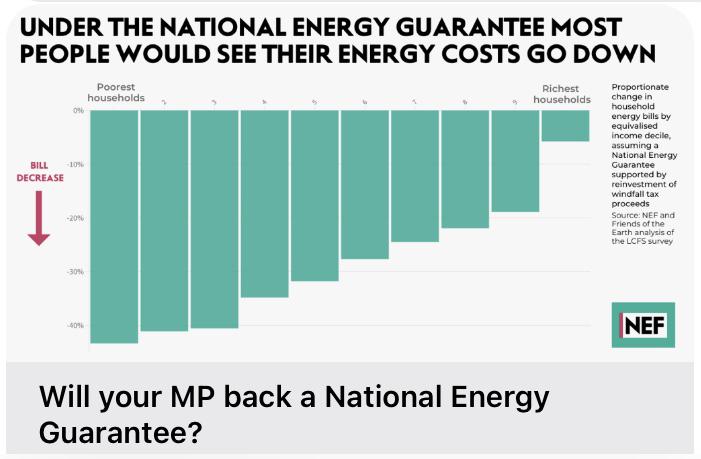The Battle of Hastings and beyond
August is the silly season in British politics but behind the scenes something important is happening.

There’s a new ‘Battle of Hastings’ brewing. This has nothing to do with the Norman conquests. But its consequences will be just as profound as the spat between William of Normandy and King Harold.
Today’s conflict revolves around coruscating comments made about the Conservative government by Sir Max Hastings.
As former editor of the Daily Telegraph and the Evening Standard, Hastings is anything but an intransigent Leftie. Yet he is part of a revolt that may have more traction than anything happening in Labour. In an interview with LBC radio, Sir Max pitched in with the following –
“The right is now running Britain. It’s a terrifying sight.. One would like to see Keir Starmer be bolder.. Anything is better than this farce which is making Britain look absurd in the eyes of the world. And that’s a tragedy for those of us who care passionately about our country.”
This is an arrow in the eye not just for Rishi Sunak but for the Conservative Party as a whole.
Sir Max isn’t pitching in on his own. Lord Goldsmith and Lord Deben (John Gummer) have been brutal on climate politics. Goldsmith made the point that Labour has to be much stronger on the ‘nature’ agenda if it wants his vote, while Gummer called for restrictions (taxes?) on private flights. Meanwhile, former Tory Chancellor, Ken Clarke has been no less coruscating in his criticism of Sunak’s approach both to liberties and economics.
It’s hard to find anyone, other than Sunak’s lunatic right, springing to the Tories defence. And yet it is the far-right who continue to call the political shots. Liz Truss’ nominations to the House of Lords are a shopping list of clowns, crooks and cranks. But Sunak has shown little interest in rejecting them. Britain is stuck with a government of small minds obsessed with the pursuit of small boats. Meanwhile, the planet creaks at the seams.
The scariest part is that Labour seems just as lost. Tucking in just to the side of Sunak, Labour ducks any fundamental rethink of economics and Treasury policies. Yet this is what climate science urgently calls for. Instead, Labour has systematically excluded radical thinkers from its candidate selection processes. And ‘purgers’ within the Party hierarchy have muted criticisms from Campaign Group MPs who now tread warily around their own suspension prospects.
The trouble with triangulation
Politically, Labour seems to have reverted to its 1997 obsessions with ‘triangulation’; broadly accepting Treasury orthodoxies and instead obsessing about being marginally to the Left of the Conservatives. And, as the Tories move to the Right, Labour looks to inherit the centre-ground votes they leave behind.
This was New Labour’s plan 25 years ago. We would have won without it. But today it is a recipe for disaster. Posturing to the left of lunatics does not get you out of the asylum.
Sunak’s Party abandoned the middle ground long ago. Its appeal is to bigots and racists, crooks and charlatans. They know the next election is lost. They plan merely to race through all the regressive
legislation they can muster; stripping citizens of rights, leaving a hobbled economy in the hands of the corporately rich, and blatantly ignoring climate crises that are throwing everything into disarray. Within months of an election the Tories will blame it all on Labour.
Rather than making this the battleground Labour has chosen to make itself ‘a small target’, almost indistinguishable from the Tories. Politically, it’s a shallow choice. Ecologically it’s a catastrophic one. Without a fundamental rethink of economics, voters won’t believe that “Things…can only get better”.
The Climate Musketeers
Not everything, however, is doom and gloom. Physics more than politics is in the driving seat. Increasing numbers of people know that only turbulent times lie ahead. This makes the fragments of radical thinking all the more important, not least in the work of a small group of parliamentary ‘climate musketeers’.
When parliament reconvenes in September it will face 3 key amendments to the Energy Bill. Each has been tabled by members of the parliamentary Green New Deal Group. The 3 climate musketeers in question – Caroline Lucas, Clive Lewis and Nadia Whittome – have produced a snappy little video outlining their amendments (https://twitter.com/labourlewis/status/1692194382835847535?s=20).
In essence, the amendments link poverty and planetary issues in ways that redefine how we think about energy and markets. Between them, the 3 amendments would introduce
- a National Energy Guarantee
- a government obligation to produce an energy ‘demand reduction’ plan, and
- a statutory, long-term, energy-efficiency programme to upgrade Britain’s homes.
If it had half a brain the Labour leadership would leap in behind all 3 proposals, putting Sunak’s scammers completely on the back foot.
A UK energy entitlement
The notion of a national energy entitlement is an interesting variation on Nelson Mandela’s universal water entitlement. In a land where water is scarce, Mandela knew that the universal right to a core quantum of water was needed to guarantee the inclusion of the poorest. Then he used progressive pricing to discourage profligacy.
Britain must do the same with affordable energy. And this is what the amendment by Clive Lewis MP sets out to do.

Under Lewis’ ‘energy entitlement’ amendment most households in the UK would face reducing energy costs. Beyond that, a rising scale of charges would then force a change in energy thinking.
Using less energy becomes more attractive than consuming more.
For households stuck in fuel-poor, rented properties Britain could then do with following some examples in Germany.
There, if a property falls below a given energy efficiency rating, the landlord can become responsible for the energy bills.
Such a prospect changes the whole perspective landlords about raising the standard of properties they rent out. Moreover, access to low-cost climate finance loans make upgrading a no-brainer.
Demand reduction
It will come as no surprise that the second climate musketeer is Caroline Lucas MP. Her amendment calls for a national demand-reduction plan for energy.
The amendment’s reach is vast. Suddenly we would begin to see food security and food choices in energy and climate terms. Her amendment would also run into transport issues and the modal shifts needed to deliver radical energy (and carbon) reductions. And by inverting Treasury transport subsidies, this could become the life-blood/lifelines that reconnect rural areas with their urban hubs.
No less profound would be a subsidy switch from primary imports to a ‘repair & restore’ economics; rewarding circularity as well as reducing Britain’s energy footprints.
The Warm Homes Musketeer
The last of our climate heroes/villains is the newest, Nadia Whittome MP. As the Warm Homes Musketeer, her amendment calls for a national programme to upgrade the energy efficiency of Britain’s homes … and not before time.
Since 2010, Britain has had a miserable record in reducing fuel poverty. It took a couple of years before the Tories started ditching what they called Labour’s “Green crap” fuel poverty programmes. No words can match the graphics of programme collapse. Warm Homes funding was decimated and so were people’s lives.
All the human suffering, the squalor and the ill health that went along with Tory austerity programmes rolled on into today’s impossible demands and pressures on the NHS.

Of course we must pay NHS workers better, if only to stem the haemorrhaging of staff who hold the system together. But tackling the causes of ill-health is no less urgent and fuel poverty is as central to personal health as to planetary health.
Cut energy bills and there’s more cash for food. Cut energy bills and you cut their carbon impact on the planet. It’s a commitment from which we all emerge as winners.
Well, maybe not all. Today’s energy price hikes are the product of a rigged energy market, with prices set by the marginal price of gas. It’s a bonkers approach allowing fossil fuel companies to rake in huge profits without levering any shift towards renewables.
Nor does it decentralise and democratise the energy system in ways that could cut energy bills (and carbon emissions) even faster. But if the amendments of the 3 climate musketeers get passed it could trigger the bigger changes we ultimately need.
Back in the parliamentary bunker, Sunak’s government will continue to disintegrate by the day. His MPs queue up to announce intentions to jump ship before the electorate ditches them. Sunak will struggle to find enough decent MPs for a game of Scrabble let alone an honest Cabinet.
But Labour can’t afford to triangulate with corruption. Instead, it should make peace with the musketeers; joining them in the offer of a radical and inspirational alternative. What Britain needs is an inclusive and ecological alternative.
“All for one and one for all”, as the musketeers might say.
Alan Simpson